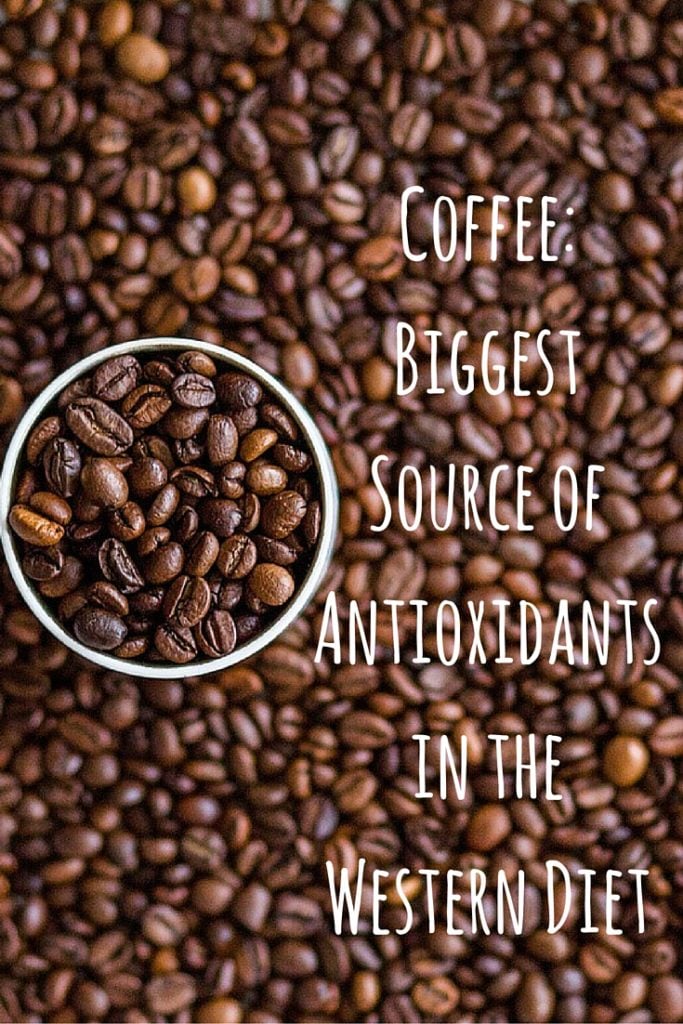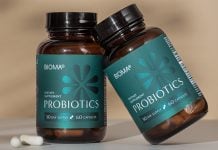
Coffee: Load up on antioxidants?
So what are antioxidants? As our expert explains, the more you have the, “…more protection against cell aging and damage…” But how can coffee help you out? Well, check out this article!
Your main source of antioxidants?
How do you see coffee? Depending on whom you ask it is either a vice or a savior.
Coffee is usually seen as addictive and, in excess, it can certainly be. In recent years, more and more scientific studies have started to show the various health benefits associated with coffee. The typical cup of coffee (240ml) contains:
- Vitamins: B1 (2% of RDA), B2 (11% of RDA), B3 (2% of RDA), B5 (6% of RDA)
- Folate (1% of RDA)
- Potassium (3% of RDA)
- Manganese (3% of RDA)
- Phosphorous (1% of RDA)
- Magnesium (2% of RDA)
 These quickly stack up when you have two or three cups a day. Most importantly coffee contains essential antioxidants in large amounts.
These quickly stack up when you have two or three cups a day. Most importantly coffee contains essential antioxidants in large amounts.
But what exactly are antioxidants?
Antioxidants are important since they bond with molecules called free radicals. Our bodies are under constant attack as these free radicals react with and damage cell structures like DNA and proteins. The higher your daily antioxidant intake the fewer free radicals are coursing through your body.
This means you will have more protection against cell aging and damage since oxidative stress is part of that mechanism. Coffee contains large amounts of Hydrocinnamic Acid, an antioxidant responsible for fighting oxidative stress associated with free radicals.
Antioxidants not only help fight oxidative stress but also help in the prevention of various diseases.
Coffee also contains large amounts of polyphenols, which help prevent diseases like cancer, heart disease, and Type 2 diabetes.
Finding sources for antioxidants
The richest sources of antioxidants are spices (like cloves and star anise) and herbs (like peppermint, rosemary, and thyme). They are followed by cacao powder and chocolate, which are rich in polyphenols. The darkest berries like black chokeberry, black elderberry, blueberry, and blackcurrant are all in the top ten, followed by darker-skinned fruits like plums and blackberries.
The lighter-skinned fruits (such as grapes and strawberries) are further down the list followed by pome or drupe fruits (like apples, peaches, and pears). The first beverage on the list is coffee. It is followed by green and black tea. Other beverages like wine and juice are further down the list.
Several seeds (like flaxseed) and nuts (like chestnuts and walnuts) also share the top spots, while the two richest vegetable sources are black and green olives.
They are followed by a red or yellow onions, shallots, and spinach, while the rest of the vegetable family reside further down the list.
So where does coffee fit in?
On average, people consume about 1-2 grams of antioxidants per day. The way our dietary patterns have evolved with the Western diet means most of the antioxidants we consume come from beverages like coffee, green tea, and black tea. In fact, beverages account for as much as 79% of our daily intake of antioxidants as compared to 21% coming from different foods.
A study, conducted by various universities in France and published in the European Journal of Clinical Nutrition, lists seeds, spices, and berries as the top 10 with coffee the first beverage at number eleven. We are unlikely to consume large amounts of seeds, spices, and berries no matter how much we love them. But we are likely to consume two to three cups of coffee (maybe more for some of us).
 This means that just the sheer volume of coffee we consume makes it the top source of antioxidants for our diet. Finnish and Norwegian studies have shown up to 64% total intake for average consumption of about two to four cups per day.
This means that just the sheer volume of coffee we consume makes it the top source of antioxidants for our diet. Finnish and Norwegian studies have shown up to 64% total intake for average consumption of about two to four cups per day.
With studies conducted across Europe (Spain, France, and Poland) and Japan validating these numbers. This shows that coffee far outweighs any other source of antioxidants.
So coffee is actually pretty good for you
Coffee stands out as the biggest source of antioxidants for people who routinely eat the standard Western diet. It has a unique mixture of micronutrients and antioxidants, which help promote a healthier lifestyle. Even caffeine has been shown to improve workout performance further cementing coffee as a healthy beverage.
Coffee drinkers have been shown to have a lower risk for certain diseases. These include Type 2 diabetes, heart disease, liver cirrhosis, liver cancer, rectal cancer, Parkinson’s, and Alzheimer’s disease. Also under investigation is how coffee intake lowers the risk of mental health issues such as depression.
But most interesting of all is the lowered risk of premature death. Keep in mind a few of these studies have been observational, but we can only benefit from further study to understand the underlining mechanisms driving these good results.
Wrap-Up
Many of us lead busy lives and often eat unhealthy out of convenience, but we can never view coffee as a replacement for healthy eating.
Although coffee might have higher levels of antioxidants than certain foods they are not the same antioxidants. Thus for a complete diet, you should vary your intake with different sources.
This ensures that you receive all the essential micronutrients and antioxidants required for a healthy lifestyle.
- Antioxidants In Coffee: All The Information You Need to Know - July 13, 2016
- Drinking Coffee Before Workout - July 6, 2016


